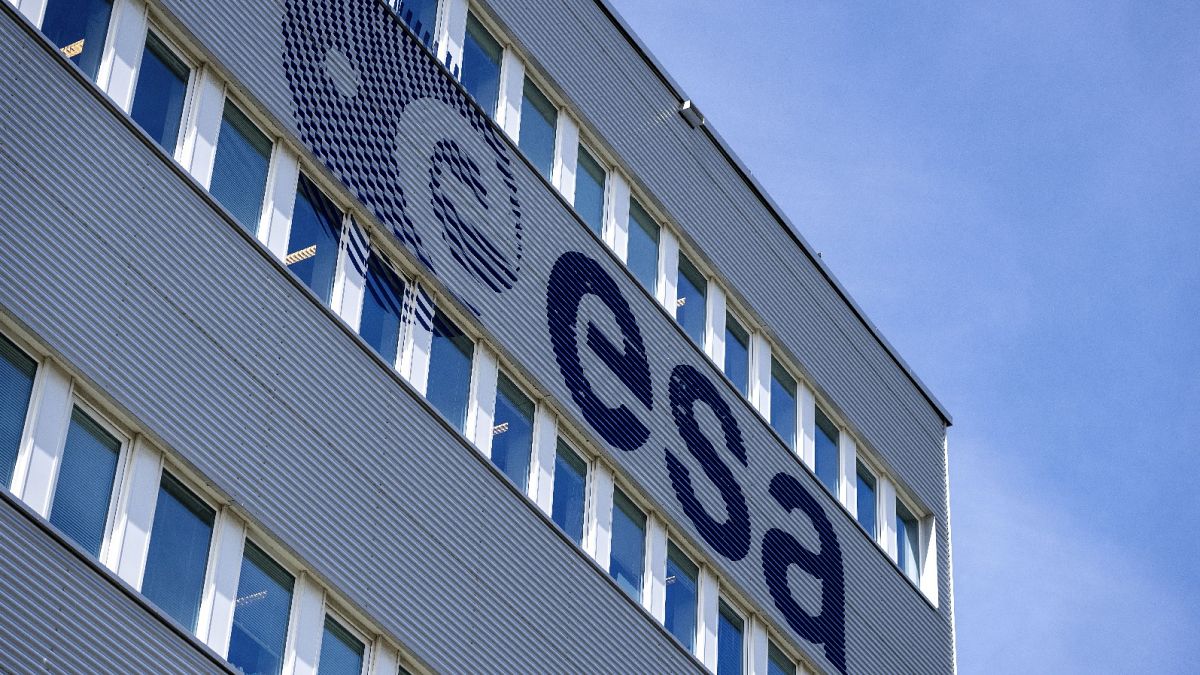The multi-orbital satellite constellation, dubbed IRIS², is scheduled to come fully online in 2030.
The European Union on Monday moved forward with its plan to launch a multi-orbital constellation of satellites to boost its secure communication systems, in particular for security and defence.
The European Commission signed 12-year concession contracts for the Infrastructure for Resilience, Interconnectivity and Security by Satellite (IRIS²) system with a consortium of companies made up of SES SA, Eutelsat SA, and Hispasat S.A.
The project, worth €11 billion, will involve just under 290 satellites that will start being launched in 2029.
The objective is to provide secure connectivity services for EU member states and governmental authorities as well as high-speed broadband for private companies and European citizens, including coverage in connectivity-deprived zones.
Andrius Kubilius, the bloc’s newly-appointed Defence and Space Commissioner, described IRIS² as a “paradigm shift for Europe”.
“For the first time ever, our space programme will explicitly contribute to the defence needs of our member states,” he said during the signing in Brussels. “In times of crisis, we cannot afford to be too dependent on countries or companies from outside the EU.”
“We are under threat, our connectivity communications are under threat,” he went on, citing attacks on underwater cables and Russia’s jamming of navigation systems in the Baltic Sea. “IRIS² will give us the ability to connect even in a hostile environment.”
The signing of the contract, roughly a year and a half in the making, is a “defining moment in our journey toward a stronger, more connected, and secure Europe,” Josef Aschbacher, director general of the European Space Agency (ESA), said.
The new constellation, he added, will be “increasing the resilience and autonomy of the union and its states, while also strengthening their satellite communication capabilities and boosting the competitiveness of the European space industry – all for the ultimate benefit of Europe and its citizens.”
Six billion euros will be provided by the EU budget – although only €2 billion are currently earmarked for it in the bloc’s ongoing multi-annual budget that ends in 2027 – while the European Space Agency (ESA) will provide €0.55 billion, and private investments will contribute to the tune of €4.1 billion.
The design phase is expected to last a year, to be followed by a development and validation phase that will run through 2028. Deployment will start in 2029 with up to 13 Ariane 6 launches, while services provision is scheduled to start in 2030.
Five member states – France, Italy, Luxembourg, Greece, and Spain – will however start pooling their extra satellite capacity from 2025 in a programme dubbed GovSatcom, with services to be gradually provided from the end of 2027.
An EU official speaking on condition of anonymity, said before the signature that the key added value of the system will be the multi-orbital element. Some 18 satellites will be launched in mid-orbit (at about 8,000 kms), the bulk of them, 264, will orbit at roughly 1,200 kms, with another 10 at between 450 and 750 kms from Earth.
This multi-layer approach is equivalent in performance to 1,000 satellites working together at a similar orbit level, the official added. And crucially, it will cover the entire world and enable the satellites to communicate together and repatriate all the data to Europe through three ground centres in Luxembourg, France and Italy.
Third countries can participate in two ways: as paid customers for certain services, or as full-fledged members. The latter requires approval by the EU Council and a financial contribution but would allow full access to the various services.
“We already have the council which has approved the waivers for Norway and Iceland,” the EU official said. “I suppose there will be many more to come.”
Some of the countries that have already expressed interest to pay for certain commercial services include Japan, the Republic of Korea, and Australia. Several African countries are also expected to be associated in some form with the programme.

